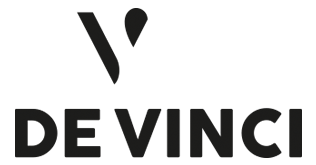About this resource
The aim of our project is to design and implement new methods for mathematics learning that are effective and valid also in distance learning contexts.
The need for innovative teaching methodologies is particularly felt in mathematics teaching. As a consequence of the Covid19 pandemic, the majority of students (including many students with an excellent level in other disciplines and an interest in mathematics) have accumulated serious gaps which, if not filled, could have repercussions throughout their university studies.
The strategies adopted by higher education institutions are not producing the desired results. Examinations in the first semester in many universities showed two situations: a decrease in grade averages with constant exam difficulty or a maintenance of grade averages with easier exams than in the past.
We would also like to organise remedial courses to enable students to fill in past gaps.
The project will also pay special attention to the needs of students with special needs, in particular students with hearing problems and disabilities. for such students, distance or hybrid teaching is particularly difficult because hearing is particularly used in this context.
The project therefore aims to provide equal opportunities for success to both students without disabilities and students with disabilities.

Pedagogical information
Objectives
The ultimate desired impact is to contribute to the development of young generations. This goal has a great impact at the local, regional, national, European and international levels because a solid preparation of the new generations is the engine of the success of tomorrow’s society. This is a very challenging task and we expect that the project and the cooperation among the partners push us in this direction.
We want moreover help student with hearing disabilities to overcome their specific difficulties. We will produce permanent intellectual outputs, which will help for improving the mathematics teaching strategies and which will be freely available to the public.
Activities
The activities of the project are logically linked and cover the main aspects for guaranteeing the achievement of the project objectives and the delivery of the planned results.
The main goal is to provide a new teaching strategy especially designed for mathematics teaching at the higher education level in the context of the Covid-19 pandemic and beyond. Hence, we first analyze all the aspects of the knowledge transmission and, at the same time, we will identify the most important mathematical skills and knowledge for a student of the 21st century.
Moreover, once identified the content of the courses and the psychological mechanisms of learning, we will produce some teaching material and strategies (websites, virtual courses, MOOCs, slides, course notes, applications…).
This teaching material and the teaching strategies will be tested on the students of the five participating organizations and the results of these tests will be analyzed in order to improve the intellectual outputs. In parallel, the participating organizations will implement some innovative ways for minimizing the negative effects of isolation and of the reduction of the social component in the teaching of mathematics.
Finally, the problem of designing right and effective evaluation strategies will be addressed. These methods, which need to go beyond the standard written exam, must ensure the accuracy of the student’s assessment and prevent fraud.
Impacts
The outcomes of our project include: a better understanding of learning processes, with particular attention to students with hearing disabilities, the design of new teaching methodologies, the production of teaching materials, which are available online in open format, the formation of university lecturers and the improvment of their teaching skills related to online and distance learning for student with and without disabilities.
The website hosting our results and the community on a social network will be maintained after the end of the project.
We moreover plan to write articles in specialized journals and reports describing our results. We will grant the general public the legal permission to use our work through an open license. We will organise training courses for teachers and three interntional conferences for widespreading our results.
Contents
Maths Project website
Lien externe
This platform is dedicated to exploring mathematical analysis and probability, providing explanations and materials suitable for university students at all levels.
CALCULUS - Universita Degli Studi di Padova
Lien externe
20 videos on Calculus edited by the Universita Degli Studi di Padova
U-net De-noising model for Transformer Optical Recognition for Mathematical equations.
Lien externe
This work is part of the IMEDiL (Inclusive Mathematics Education based on Digital Learning) program that seeks to create digital tools to help and assist the impaired persuing STEM education.
